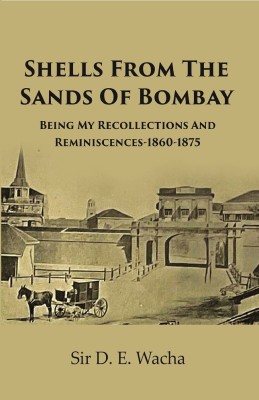Shells From The Sands Of Bombay : Being My Recollections And Reminiscences-1860-1875(Paperback, Sir D. E. Wacha)
Quick Overview
Product Price Comparison
About The Book : We have so often talked over the subject of these reminiscences that you will not need any assurance from me of the great personal pleasure which I have experienced in reading the pages in which you have gathered what you modestly call ŌĆ£Shells from the Sands of Bombay."Bombay has changed so fast, and is still changing so fast, that without such reminiscences future generations will have no conception of the evolution of the stately city which has grown up under our eyes. No-one who did not know Bombay, as you knew it, before Sir Bartle Frere levelled the ramparts, can picture the narrow walled town which has blossomed into the second city of the Empire. About The Author : Sir Dinshaw Edulji Wacha (2 August 1844 ŌĆō 18 February 1936) was a Parsi politician from Bombay (Mumbai). He was one of the founding members of the Indian National Congress.Wacha was also the president of the Congress in 1901. Wacha was associated with the cotton industry and was the President of the Indian Merchants' Chamber in 1915. He was knighted in 1917. Sir Dinshaw was a member of the Bombay Legislative Council, the Imperial Legislative Council and the Council of State. He headed the Western India Liberal Association from 1919 to 1927. Wacha lamented the lack of dedicated leaders who were willing to devote to Congress's political goals. He observed how many figures, such as Pherozeshah Mehta, who would have made capable leaders, eschewed total alliance with the Congress for fear of damage to their private careers. Despite this lack of support from Indian leaders, Wacha did acknowledge the vital role that the Scotsman, Allan Hume, played in maintaining Congress in between sessions, stating, "He is the man to give us steam." Still, Wacha expressed concern over Hume's growing influence over Congress and micromanagement of its affairs. "Because he is indispensable... [Hume] ought not to behave as a tyrant...He thinks in all matters he must have the upper hand." Wacha encouraged fellow Indians to take a more active and vocal role in Congress affairs, expressing, "We ought to be energetic and patriotic enough to make an advance in our political progress without such aid. We cannot expect a perennial crop of Allan Humes to assist us."


